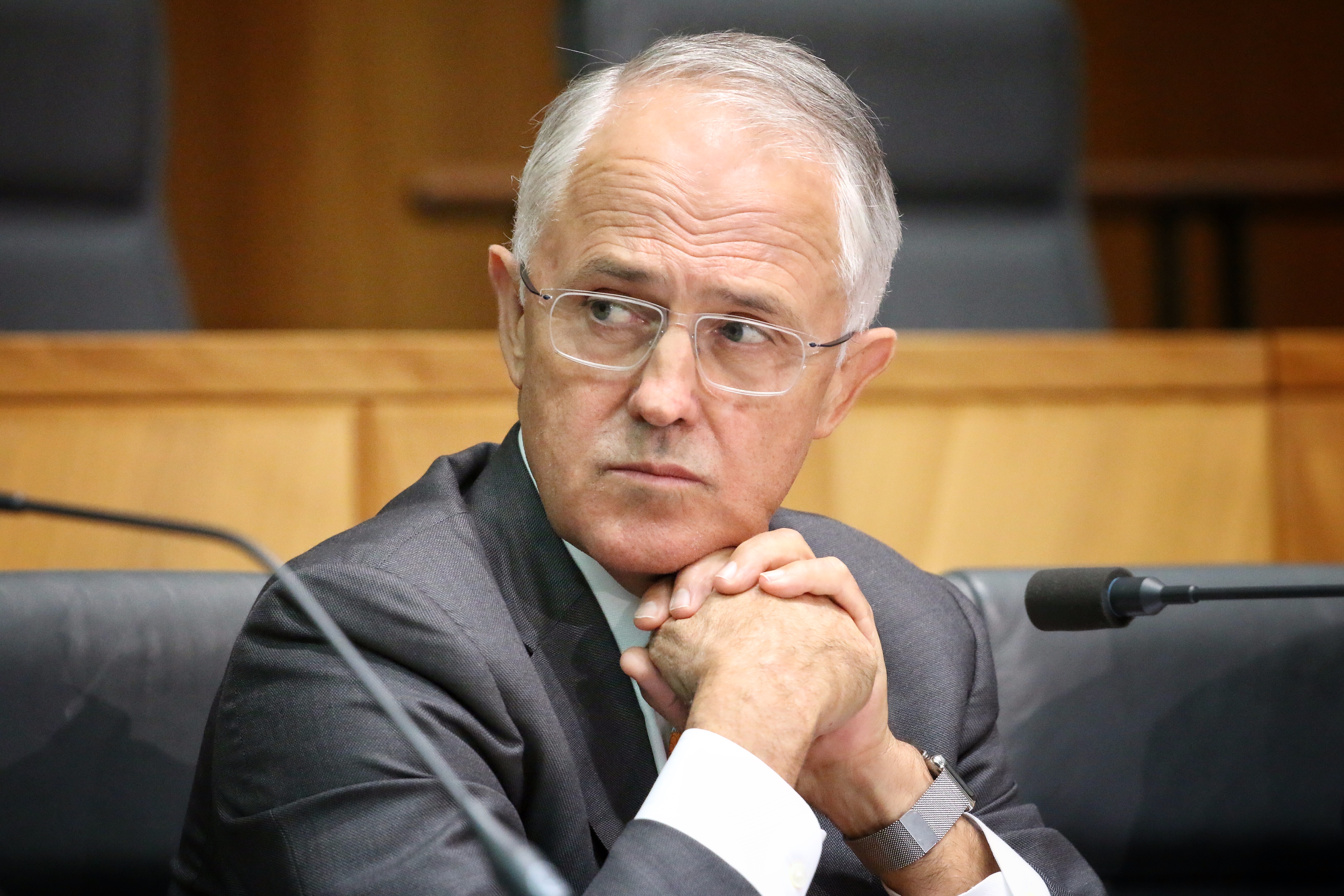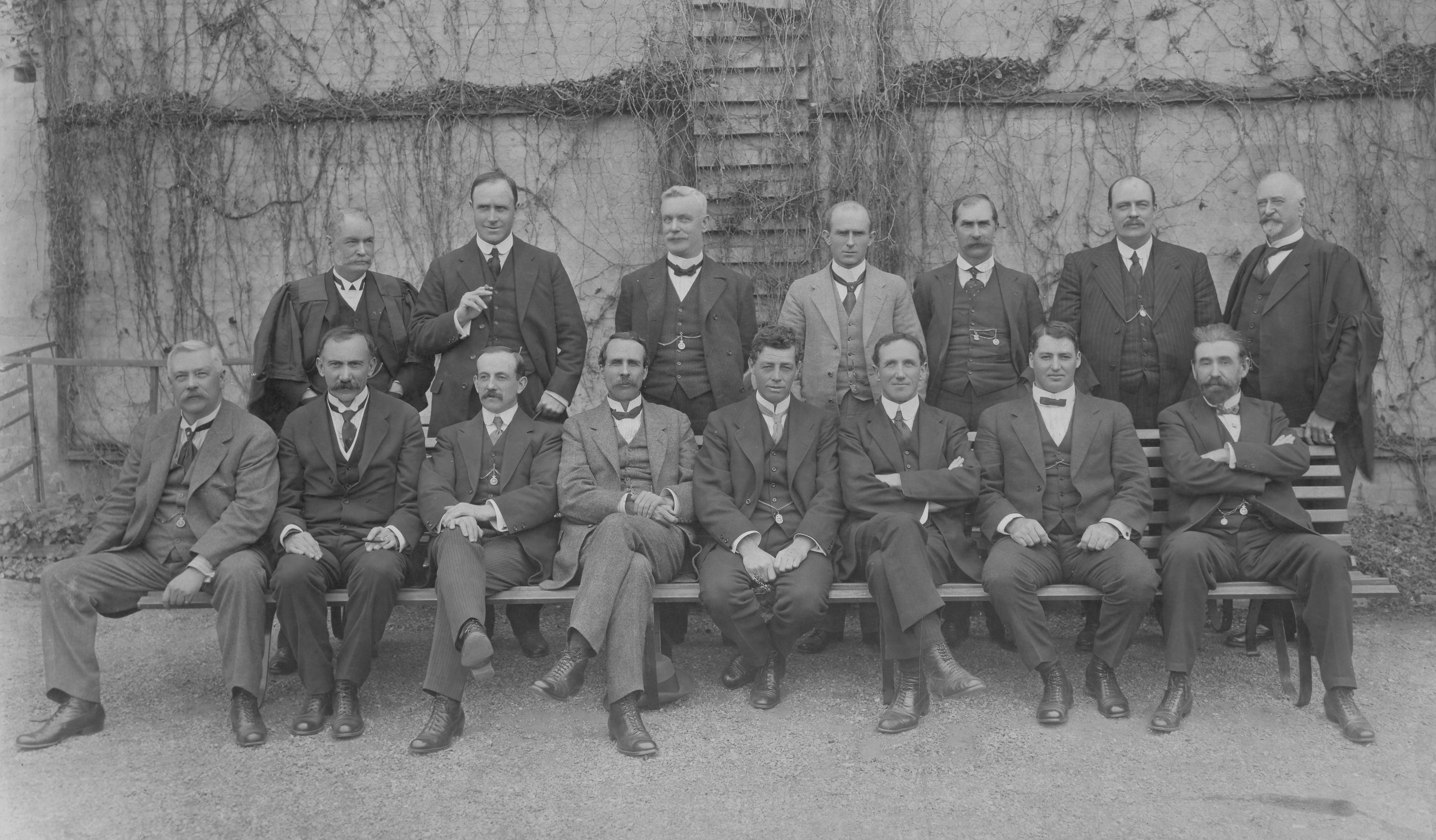Council of Australian Governments on:
[Wikipedia]
[Google]
[Amazon]
 The Council of Australian Governments (COAG) was the primary intergovernmental forum in Australia from 1992 to 2020. Comprising the
The Council of Australian Governments (COAG) was the primary intergovernmental forum in Australia from 1992 to 2020. Comprising the
 COAG grew out of the Premiers' Conferences, which had been held for many decades. These were limited to the premiers of the six states and the Prime Minister. A related organisation is the Loan Council, which coordinates borrowing by the federal and state and territorial governments of Australia.
COAG was established in May 1992 after agreement by the then
COAG grew out of the Premiers' Conferences, which had been held for many decades. These were limited to the premiers of the six states and the Prime Minister. A related organisation is the Loan Council, which coordinates borrowing by the federal and state and territorial governments of Australia.
COAG was established in May 1992 after agreement by the then
Council of Australian Governments
1992 establishments in Australia Organizations established in 1992 Organizations disestablished in 2020 Government of Australian states and territories Federalism in Australia Executive federalism
 The Council of Australian Governments (COAG) was the primary intergovernmental forum in Australia from 1992 to 2020. Comprising the
The Council of Australian Governments (COAG) was the primary intergovernmental forum in Australia from 1992 to 2020. Comprising the federal government
A federation (also called a federal state) is an entity characterized by a political union, union of partially federated state, self-governing provinces, states, or other regions under a #Federal governments, federal government (federalism) ...
, the governments of the six states and two mainland territories and the Australian Local Government Association, it managed governmental relations within Australia's federal system within the scope of matters of national importance.
On 29 May 2020, Prime Minister
A prime minister or chief of cabinet is the head of the cabinet and the leader of the ministers in the executive branch of government, often in a parliamentary or semi-presidential system. A prime minister is not the head of state, but r ...
Scott Morrison
Scott John Morrison (born 13 May 1968) is an Australian former politician who served as the 30th prime minister of Australia from 2018 to 2022. He held office as leader of the Liberal Party of Australia, leader of the Liberal Party and was ...
announced that COAG would be replaced by a new structure based on the National Cabinet implemented during the COVID-19 pandemic
The COVID-19 pandemic (also known as the coronavirus pandemic and COVID pandemic), caused by severe acute respiratory syndrome coronavirus 2 (SARS-CoV-2), began with an disease outbreak, outbreak of COVID-19 in Wuhan, China, in December ...
.
History
 COAG grew out of the Premiers' Conferences, which had been held for many decades. These were limited to the premiers of the six states and the Prime Minister. A related organisation is the Loan Council, which coordinates borrowing by the federal and state and territorial governments of Australia.
COAG was established in May 1992 after agreement by the then
COAG grew out of the Premiers' Conferences, which had been held for many decades. These were limited to the premiers of the six states and the Prime Minister. A related organisation is the Loan Council, which coordinates borrowing by the federal and state and territorial governments of Australia.
COAG was established in May 1992 after agreement by the then Prime Minister
A prime minister or chief of cabinet is the head of the cabinet and the leader of the ministers in the executive branch of government, often in a parliamentary or semi-presidential system. A prime minister is not the head of state, but r ...
( Paul Keating), premiers and chief ministers, and it first met in December 1992. It was chaired by the Prime Minister. It met to debate and co-ordinate government activities between the federal and state or territorial governments and between the state and territorial governments themselves as well as issues affecting local government.
COAG differed from the United States' National Governors Association
The National Governors Association (NGA) is an American Politics of the United States, political organization founded in 1908. The association's members are the governors of the 55 U.S. state, states, Territories of the United States, territories ...
or Canada's Council of the Federation, because these bodies only include state/provincial representatives, whereas COAG also included federal and local representatives.
At a COAG meeting on 13 March 2020, it was announced that a new National Cabinet was being formed of the Prime Minister
A prime minister or chief of cabinet is the head of the cabinet and the leader of the ministers in the executive branch of government, often in a parliamentary or semi-presidential system. A prime minister is not the head of state, but r ...
and the premiers and chief ministers of the states and territories to coordinate the response to the COVID-19 pandemic in Australia
The COVID-19 pandemic in Australia was a part of the COVID-19 pandemic, worldwide pandemic of the coronavirus disease 2019 () caused by SARS-CoV-2, severe acute respiratory syndrome coronavirus 2 (SARS-CoV-2). The first confirmed case in Aust ...
.
On 29 May 2020, Prime Minister Scott Morrison
Scott John Morrison (born 13 May 1968) is an Australian former politician who served as the 30th prime minister of Australia from 2018 to 2022. He held office as leader of the Liberal Party of Australia, leader of the Liberal Party and was ...
announced that COAG would be replaced by a new structure based on the National Cabinet.
Final membership
COAG and state finances
Australia is believed to be the first federation to have introduced a formal system of horizontal fiscal equalisation (HFE) which was introduced in 1933 to compensateStates
State most commonly refers to:
* State (polity), a centralized political organization that regulates law and society within a territory
**Sovereign state, a sovereign polity in international law, commonly referred to as a country
**Nation state, a ...
which have a lower capacity to raise revenue. Many federations use fiscal equalisation to reduce the inequalities in the fiscal capacities of sub-national governments arising from the differences in their geography, demography, natural endowments and economies. However the level of equalisation sought varies. In Australia, the objective is full equalisation.
Full equalisation means that, after HFE, each of the six states, the Australian Capital Territory and the Northern Territory would have the capacity to provide services and the associated infrastructure at the same standard, if each state or territory made the same effort to raise revenue from its own sources and operated at the same level of efficiency.
Currently the funds distributed to achieve HFE are the revenues raised from the Goods and Services Tax (GST), currently about AUD50bn a year. The distribution of GST required to achieve HFE is decided by the Federal Treasurer each year, on the basis of advice provided by the Commonwealth Grants Commission (CGC).
Achieving HFE does not mean that the states and territories are directed how to raise revenue or how to spend their funds. GST revenue grants from the Commonwealth are unencumbered and available for any purpose. Accordingly, HFE equalises fiscal capacity, not fiscal policies which remain for the states and territories to decide for themselves. It does not result in the same level of services or taxes in all states and territories, direct that the states and territories must achieve any specified level of service in any area, nor impose actual budget outcomes in accordance with the Commission's calculations.
At its meeting on 13 December 2013, COAG agreed to streamline the COAG council system and refocus on COAG's priorities over the next 12 to 18 months. The reforms led to a removal of the distinction between standing and select councils.
List of councils
At its dissolution, there were twelve COAG councils: * Federal Financial Relations Council * Disability Reform Council * Transport and Infrastructure Council * Energy Council * Skills Council * Council of Attorneys-General * Education Council * Health Council * Joint Council on Closing the Gap * Indigenous Affairs Council * Australian Data and Digital Council * Women’s Safety Council The COAG Reform Council was established in 2010 as an independent body to advise on reforms of national significance. It was disestablished in 2014.Criticism
In 2012 a group of 20 environmental organisations released a joint communiqué denouncing the establishment of the COAG Business Advisory Forum and wanted wider representation on the Forum. The groups also opposed the weakening of environmental regulations. After the forum's abolition in early 2020, journalist Annabel Crabb wrote that, after initial utility in the 1990s, COAG had become a "sclerotic nightmare" producing "communiques of impenetrable bureaucratese". She suggested that the meetings in Canberra had produced a performative element in which state premiers sought to boost their profile at the expense of actual reforms.See also
* Executive federalism * National Cabinet of Australia * Joint Ministerial Committee (UK), Similar body in theUnited Kingdom
The United Kingdom of Great Britain and Northern Ireland, commonly known as the United Kingdom (UK) or Britain, is a country in Northwestern Europe, off the coast of European mainland, the continental mainland. It comprises England, Scotlan ...
* First Ministers' conference, Similar body in Canada
Canada is a country in North America. Its Provinces and territories of Canada, ten provinces and three territories extend from the Atlantic Ocean to the Pacific Ocean and northward into the Arctic Ocean, making it the world's List of coun ...
*National Governors Association
The National Governors Association (NGA) is an American Politics of the United States, political organization founded in 1908. The association's members are the governors of the 55 U.S. state, states, Territories of the United States, territories ...
, Similar body in the United States of America
The United States of America (USA), also known as the United States (U.S.) or America, is a country primarily located in North America. It is a federal republic of 50 states and a federal capital district, Washington, D.C. The 48 contiguo ...
*Federal Council of Australasia
The Federal Council of Australasia was a forerunner to the current Commonwealth of Australia, though its structure and members were different.
The final (and successful) push for the Federal Council came at a "Convention" on 28 November 1883, wh ...
, pre-1901 equivalent
* Fiscal imbalance in Australia
*Inter-State Commission
The Inter-State Commission, or Interstate Commission, is a defunct Constitution of Australia, constitutional body under Australian law. The envisaged chief functions of the Inter-State Commission were to administer and adjudicate matters relati ...
* MCEETYA, Ministerial Council on Education, Employment, Training and Youth Affairs
* COAG Reform Council
References
{{Reflist, 30emExternal links
Council of Australian Governments
1992 establishments in Australia Organizations established in 1992 Organizations disestablished in 2020 Government of Australian states and territories Federalism in Australia Executive federalism